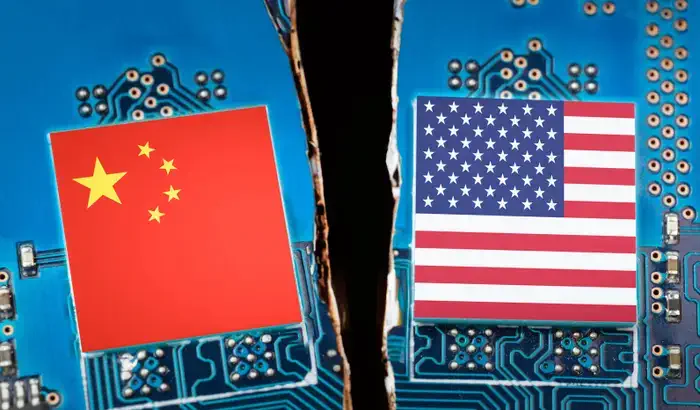
China’s Grip on Critical Minerals Sparks Fears of Chip Supply Crunch Under Trump.
As the global semiconductor industry braces for a potential escalation of the U.S.-China trade war under a Trump presidency, the spotlight has turned to China’s stranglehold on the supply of critical minerals needed to manufacture chips.
For the past year, China has been retaliating against the long-standing trade tensions with the United States, particularly targeting the semiconductor sector.
With Donald Trump‘s victory in the recent presidential election, analysts believe China is poised to further tighten its grip on the critical minerals supply chain, potentially choking off the flow of these essential raw materials.
China’s Domination of Critical Minerals: As it stands, China has a dominant position in the global supply of several key minerals required for chip manufacturing. The country produces around 80% of the world’s gallium and 60% of germanium, both of which are essential components in semiconductor production.
Moreover, China controls 80% of tungsten and 90% of magnesium supplies, and is the biggest buyer, refiner, and exporter of cobalt and lithium, which are critical for the electronic vehicle and renewable energy industries.
In the past year, China has already implemented stringent export restrictions and licensing systems for these minerals, a move widely seen as retaliation against the United States’ trade policies.
The semiconductor industry, which is already grappling with supply chain disruptions and the global chip shortage, is particularly vulnerable to any further disruptions in the supply of critical minerals.
“Taiwan is the largest producer of chips in the world, followed by South Korea, China, and the United States,” explains an industry expert. “However, China has been steadily chipping away at Taiwan’s dominance in chip-making, using a two-pronged approach of increased R&D investment and control over the critical minerals supply chain.”
With Trump’s victory, the prospect of an escalated trade war with China has heightened these concerns. Analysts warn that if China decides to further restrict the export of these crucial minerals, it could have a devastating impact on the global semiconductor industry, potentially leading to a severe shortage of chips.
A Double-Edged Sword for China: However, the analysts also caution that China’s strategy of using its control over the critical minerals supply chain as a trade weapon could backfire. China’s own economy is facing a precarious state, with a struggling real estate sector and debt-ridden local governments.
“Even though China is the leading producer and processor of these minerals, there are alternative suppliers, and some materials, such as gallium and germanium, have substitutes as well,” notes an industry analyst.



